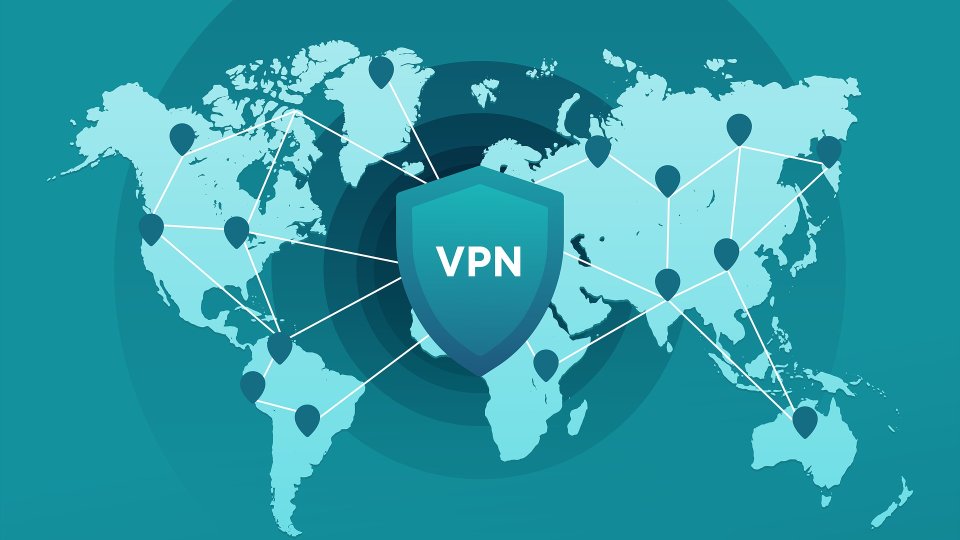In today’s digital world, safeguarding your personal information is paramount. From identity theft to intrusive ad tracking, your data is at risk whenever you go online—especially in the United States. A Virtual Private Network (VPN) offers a powerful solution by encrypting your data and masking your real IP address, helping you browse securely. In this guide, we’ll walk you through how VPNs work, the types of VPN services available, and tips for selecting the best option for your needs.
1. Understanding VPN Services
VPNs (Virtual Private Networks) create an encrypted “tunnel” for your internet connection, preventing anyone—including hackers or internet service providers (ISPs)—from seeing your online activities.
- Data Encryption: Keeps your personal information safe from cybercriminals.
- IP Address Masking: Hides your real location, providing added anonymity online.
- Bypass Geo-Restrictions: Access region-locked content, such as international streaming libraries.
- Extra Security: Many VPNs include malware-blocking and ad-blocking features.
Need a secure connection ASAP? Explore Top VPN Providers from PCMag to protect your data right now.
2. Types of VPN Services Available
VPNs come in various forms, each offering different levels of security, pricing, and features. Here are some common options:
Personal VPNs
Ideal for individual users looking to protect data on laptops, smartphones, and tablets.
- Subscription Cost: Typically $5–$13 per month (lower with annual plans).
- Features: Includes multi-device support, robust encryption protocols, and 24/7 customer service.
- Best For: Everyday browsing, streaming, and staying secure on public Wi-Fi.
Looking for a top-rated personal VPN? Compare NordVPN and ExpressVPN to find your perfect match.
Business VPNs
Designed to protect company data and secure remote work environments.
- Advanced Features: Dedicated IP addresses, user management tools, and encrypted file sharing.
- Ideal For: Employers who want to safeguard data and enable safe remote access for staff.
- Cost: Often billed per user/per month, with discounted rates for larger teams.
Interested in a business VPN? Check Perimeter 81 for advanced features and team management.
Free VPNs
While free VPNs can offer basic encryption, they often come with drawbacks such as limited bandwidth and slower speeds.
- Pros: No monthly cost, easy to set up.
- Cons: Potential logging of data, ads, or selling user information to offset costs.
- Best For: Occasional use or quick one-time secure connections.
Considering a free option? Check out ProtonVPN Free for a privacy-focused service (with limitations).
3. Preparing for a VPN Subscription
A little preparation goes a long way in selecting a VPN that meets your speed, security, and privacy needs.
Check Your Internet Speed
VPNs can slow your connection slightly due to encryption overhead. Knowing your baseline speed helps you choose a VPN with fast servers.
- Speed Test: Use Speedtest by Ookla or your VPN’s built-in speed test.
- Server Locations: More servers in or near the U.S. can mean better speeds for American users.
Curious about your internet speed? Get a Free Speed Test before subscribing.
Consider Device Compatibility
Most VPNs support multiple platforms, including Windows, Mac, iOS, Android, and even smart TVs or routers.
- Number of Connections: Check how many devices you can use simultaneously.
- Ease of Use: Look for a user-friendly interface with one-click connections.
Read the Privacy Policy
Your VPN provider should have a strict no-logs policy, meaning they don’t store records of your online activities.
- Red Flags: Vague terms or data-sharing clauses.
- Transparency: Reputable VPNs undergo third-party audits to confirm no-logs claims.
Need to compare privacy policies? See Consumer Reports on VPN Privacy for an in-depth look.
4. Subscribing to a VPN
Once you’ve done your research, subscribing to a VPN is straightforward. Most providers offer web-based sign-ups and mobile app downloads.
- Choose a Plan: Monthly or yearly subscriptions are common; annual plans often have significant discounts.
- Create an Account: Provide your email and payment details (some VPNs even accept cryptocurrency for added anonymity).
- Install and Activate: Download the app on your device, log in, and connect to a server.
Ready to secure your internet? Start Your ExpressVPN Subscription or check out Surfshark for a budget-friendly alternative.
5. Quick Alternatives to VPNs
If you’re not ready to commit to a VPN subscription, here are a few alternatives—though each comes with its own limitations.
Proxy Servers
A proxy hides your IP address by routing traffic through another server, but proxies often lack encryption, leaving data vulnerable.
- Pros: Simple, often free.
- Cons: No data encryption, limited security features.
Explore HideMyAss! Proxy as a quick, free option—but be aware of limitations.
Tor Browser
Built to protect user anonymity by routing traffic through multiple volunteer-run servers.
- Advantages: High level of anonymity, free to use.
- Drawbacks: Slower speeds, not ideal for streaming or large file downloads.
Learn more about Tor from the Tor Project.
Incognito/Private Browsing Modes
Private browsing modes erase local history and cookies after a session but do not hide your activity from ISPs or websites.
- Pros: Easy to enable in any web browser.
- Cons: Doesn’t encrypt data or hide IP addresses.
Pros and Cons of VPN Options
| VPN Type | Pros | Cons |
|---|---|---|
| Personal VPN | Robust security, multi-device support, great speeds | Monthly subscription cost, may slightly slow connection |
| Business VPN | Advanced features, team management, dedicated IPs | Higher overall cost for businesses |
| Free VPN | No cost, easy to try | Limited data/speed, potential data logging |
| Proxy Servers | Hides IP address, often free | No encryption, less reliable |
| Tor Browser | High anonymity, free to use | Slower speeds, not ideal for high-bandwidth usage |
| Incognito Mode | Hides local history and cookies | Does not hide IP address or encrypt traffic |
Tips for Maximizing Your VPN Experience
While a VPN provides essential privacy and security, a few best practices can help you get the most out of your subscription:
Use Auto-Connect
Set your VPN to launch automatically whenever you use public Wi-Fi or switch on your device.Choose the Right Server
Selecting a server close to your physical location can improve speeds and reduce latency.Enable Kill Switch
A kill switch instantly cuts off your internet if the VPN connection drops, preventing data leaks.
Conclusion: Finding the Right VPN for Your Needs
A VPN is more than just an app—it’s your front line of defense against online threats and privacy intrusions. By understanding how VPNs work, exploring various types, and choosing a reputable provider, you can confidently secure your internet connection and enjoy a safer online experience in the United States.
Start here:
With the right VPN choice and a few best practices, you’ll keep your data private and your online activities secure—no matter where you browse.





